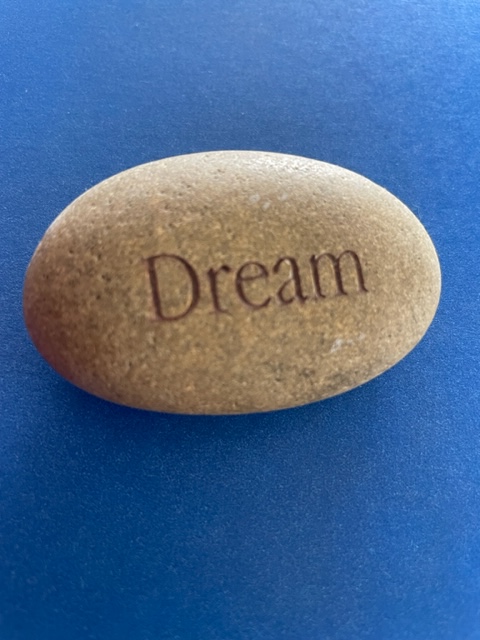
Another dreamer describes a dream in which a very interesting interpersonal relationship is enacted. This is an interpersonal engagement that the dreamer will never have—but would like to have. The dreamer is sitting down with a group of jazz musicians. They ask what I do. “I am a social worker . . . like you I am in the business of improvisation.” We laughed together. I Shaked the hand of the pianist and then left.”
The dream can serve in yet another way as a “gift” for the dreamer—and as a vehicle for wish-fulfillment. In our dreams we can accomplish something wonderful that is praiseworthy. Other people acknowledge what we have done. We feel great. One of my dreamers recounts the wonderful impact on them (even when later awake) of a dream in which they cooked a great feast for many people. They were applauded by everyone. Glasses of a wonderful wine were hoisted as a toast to their culinary talent. A strong desire that propelled their cooking activities during waking hours was fulfilled in the dream. Was this just a cover for an underlying sexual desire (given the close connection between food and sex) or is the toast honoring this chef enough gratification for one day.
There is another way to conceive of the wish-fulfillment function. In real life, a specific act is blocked because it is forbidden (“you can’t sleep with him! He is your sister’s husband and is happily married!”) or because there are barriers in the way of completing the act (“you can’t really fly. Unlike a bird you have no wings and are much too heavy!”). We know that uncompleted acts often accompany major trauma if these acts were intended to protect us or people we love. (Levine and Frederick, 1997).
While these major traumas are fortunately rare in most of our lives, the uncompleted act can still be frustrating and anxiety-producing. Most importantly, the uncompleted act tends to linger in our memory. This is what psychologists call the “Zeigarnik effect” We see this effect in place when we witness and experience a lingering desire to finish that 3%^&($* jigsaw puzzle or finish painting that wall (even though your back aches from trying to paint the ceiling). The dream often provides a setting for completing the act. We dream of making love to our brother-in-law (“what!!!”) or we fly all over the place (“we just have to give it a good bounce!”)
One of my dreamers recounts a dream in which she was arranging for a major meeting. It had not yet been held and was likely to be cancelled because of health challenges (the pandemic) and related transportation problems. She dreamed that the meeting did occur and that it was a big success. My colleague reported that this dream yielded quite beneficial results. She was able to relax and let everything play out. In due course, the meeting was canceled. My colleague reported that she had savored the success of meeting in the dream and didn’t need the actual meeting to be a success. Dreams can triumph over reality. Wishes can be fulfilled if not by Walt Disney then by what occurs in our dreams.





